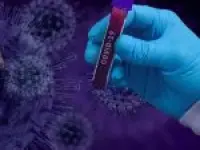
“No Need to Worry, Closely Monitoring”: Health Minister Nadda on HMPV
Union Health Minister JP Nadda has assured citizens that there is no cause for alarm regarding the Human Metapneumovirus (HMPV), which has recently been confirmed in India. Nadda clarified that HMPV is not a new virus; it was first identified in 2001 and has been circulating globally for years. He emphasised that the virus spreads through the air and can affect individuals of all age groups, with higher prevalence during winter and early spring. The health ministry, along with the Indian Council of Medical Research (ICMR) and the National Centre for Disease Control, is closely monitoring the situation, particularly following reports of cases in China and neighbouring countries.
The World Health Organisation (WHO) has also taken note of the developments and will share a detailed report soon. A joint monitoring group meeting, chaired by the Director General of Health Services, was convened on 4th January to review the situation. Nadda highlighted that surveillance data from ICMR and the Integrated Disease Surveillance Program shows no unusual surge in respiratory viral infections in India. He assured that the country’s health systems and surveillance networks are vigilant and prepared to respond promptly to emerging health challenges.
In India, HMPV cases have been reported in Bengaluru, Ahmedabad, and Chennai, with a total of five confirmed infections. The latest cases in Chennai involve two children admitted with respiratory distress and cough, both of whom are recovering. Ahmedabad reported a case in a two-month-old baby, while Bengaluru recorded infections in infants aged three and eight months.
Health experts have reiterated that HMPV is a common seasonal respiratory virus, with symptoms resembling those of the common cold, such as fever, cough, and nasal congestion. Severe cases can lead to complications like pneumonia and bronchitis, particularly in young children, the elderly, and those with weakened immune systems. Experts have advised maintaining good hygiene, avoiding close contact with symptomatic individuals, and self-isolating if unwell to prevent the spread of the virus.
There is currently no vaccine or specific antiviral treatment for HMPV. Most infections resolve on their own with supportive care to manage symptoms.













